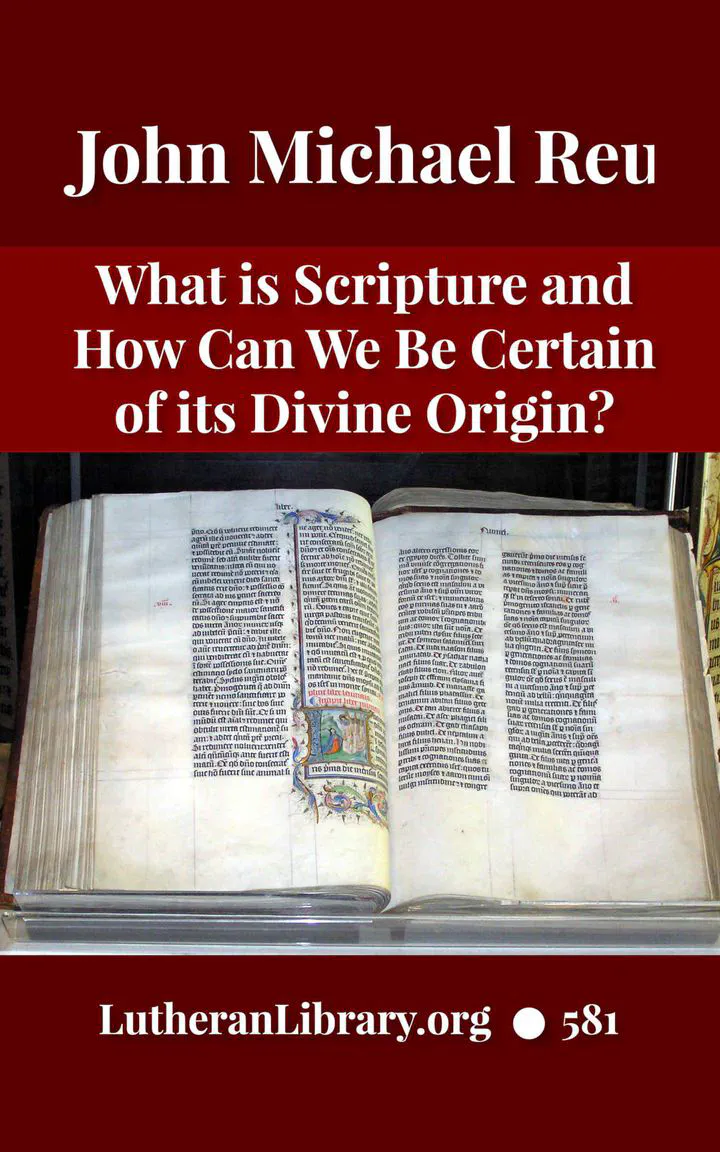What is Scripture and How Can We Be Sure of Its Divine Origin by John Michael Reu

How To Understand Scripture
“The sin of man not seldom works as a barrier, obscuring what is clear per se. That is the reason why we mentioned also progress in sanctification as one means that might accelerate the process. Furthermore, the exegetical work must be done according to proper principles:
1 Each passage has but one sense or meaning, the sensus literalis, and it is our task to discover this sense with the aid of grammar and dictionary, through a reconstruction of the historical situation with all its psychological possibilities, and by careful observation of the context;
2 The individual passage is to be considered in the light of the whole Bible, because Scripture is its own interpreter;
3 Obscure passages are to be interpreted in the light of the clear ones dealing with the same truth;
4 The sum total of the perspicuous passages is to be, as it were, the guardian of truth so that a disagreement between individual exegetical results in explaining an obscure passage and this sum total is an indication that the divinely intended sense of the respective passage has not yet been discovered.
This last rule which is really a specification of the second we find applied, f. i., when the Formula of Concord refutes the thesis of Flacius that original sin belongs to the essence of fallen man. Here the Formula proves the untenability of the thesis by showing that it is in conflict with the doctrine of creation, incarnation, sanctification and the final resurrection. — John Michael Reu
About Dr. John Michael Reu
John Michael Reu (1869-1943) studied at Loehe’s Neuendettelsau Mission Institute in Bavaria and was ordained to the Lutheran ministry at the age of 20. He served pastorates in Mendota and Rock Falls, Illinois, and taught at Wartburg Theological Seminary in Dubuque, Iowa for 44 years.[Wikipedia] “It was said of Reu, that the Bible was a love story from beginning to end, God wooing back His own and sustaining them with heavenly food. Reu understood the main task of Christian education to be telling the story of God as revealed in scripture. And for Reu, the study of scripture was more than just the pursuit of knowledge, but had to do with formation and feeding of the soul. He leaves a legacy of a man who was a teacher, pastor, student and lover of God’s word.” [Mark Kvale & Robert C. Wiederaenders; Biola]
Book Contents
- About Dr Reu by Em. Poppen
- Unionism
- An Open Letter To The Lutheran Pastors Of The United States And Canada
- Fellowship Negotiations With The United Lutheran Church In America
- I. Recommendations
- II. Doctrinal Statement on Inspiration and the Scriptures
- Declaration Of The Representatives Of The American Lutheran Church
- I. Scripture and Inspiration.
- II. Universal Plan of Salvation, Predestination and Conversion.
- III. The Church.
- IV. The Office of the Public Administration of the Means of Grace.
- V. The Doctrine of Sunday.
- VI. The Doctrine Concerning the Last Things.
- Statement Submitted To The Intersynodical Committee Chicago, January, 1938 By The Representatives Of The Missouri Synod
- Report And Resolutions Of Committee No. 16 Relative To Overture 513
Publication Information
- Lutheran Library edition first published: 2020
- Copyright: CC BY 4.0